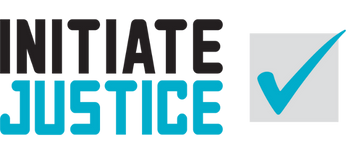
This report examines the state of voting rights for incarcerated people in California and highlights how exclusion from democracy continues to harm system-impacted communities. Drawing from a statewide survey, the findings reveal that incarcerated people overwhelmingly want to vote and see civic participation as a path toward connection, healing, and positive change.
Voter disenfranchisement laws have long been used to deliberately strip political power from oppressed communities.
Although voter disenfranchisement laws remain common across the United States, several states have taken meaningful steps to restore voting rights. After peaking in 2016, the number of Americans disenfranchised has dropped significantly—falling from 5.9 million in 2016 to 4.0 million in 2024, which is a 31% decrease. This decline is largely the result of recent legal reforms restoring voting rights, pursued by criminal justice and voting rights advocates.


In Nebraska, the Supreme Court affirmed that formerly incarcerated people are eligible to vote immediately upon completing their sentences following passage of a reform measure in 2024.

In Minnesota and New Mexico, each state’s governor signed laws in 2023 restoring voting rights to people with felony convictions automatically upon release from incarceration.

In Illinois, all formerly incarcerated people’s voting rights are automatically restored immediately after release.9

In Nevada, the legislature restored voting rights to formerly incarcerated people who are on probation or parole.

In Washington, D.C., the legislature expanded voting rights to incarcerated individuals with any felony conviction through the passage of the Restore the Vote Amendment in 2020.10

There remain only two states that do not have any felony disenfranchisement laws: Maine and Vermont (as well as the District of Columbia and the Commonwealth of Puerto Rico).
The Initiate Justice 2023-2024 report had 1,124 survey respondents, all of whom were incarcerated throughout prisons in California at the time of response. Data was collected from October 2023 to February 2024. Physical paper copies of the survey were disseminated with the help of internal organizers at Initiate Justice. Thirty-three Initiate Justice volunteers read through the surveys and assisted with data entry.

Following the examples set by D.C., Maine and Vermont, which are the only three U.S. places thus far to allow people in prison to vote, Initiate Justice advocates for the complete elimination of voter disenfranchisement in California prisons. We call for the unconditional restoration of voting rights to all incarcerated people, ensuring that no one loses the right to vote while serving a sentence in prison.
Because voting disenfranchisement is written into California’s Constitution, restoring these rights requires a constitutional amendment approved by voters. Proposition 17 (2020) restored voting rights for people on parole, but those in prison remain excluded. We urge the Legislature to pass—and voters to support—a new amendment that fully restores the right to vote for people incarcerated in California.
Alongside restoring voting rights, the Legislature must ensure meaningful access to the ballot. Barriers like limited mail access, language challenges, and lack of valid ID are intensified behind bars. To address this, election laws should allow ballot requests through Election Day, enable same-day registration, provide translated materials, and recognize correctional facility IDs as valid voter identification.
The California Department of Corrections and Rehabilitation (CDCR) must build a culture that supports civic participation in prisons. Research shows that even where incarcerated people can vote, many don’t—often due to lack of information, mail delays, or unclear processes.
CDCR and the Secretary of State should ensure all incarcerated people are informed of their voting rights, establish in-person voter registration and polling sites in prisons, and treat ballots as legal mail to guarantee timely delivery.
Community organizations and candidates can further support this work by providing accessible, nonpartisan voter education and hosting forums inside prisons—helping build a more inclusive and accountable democracy.



